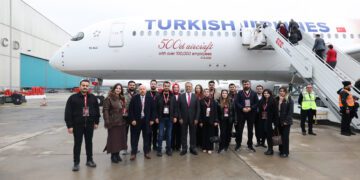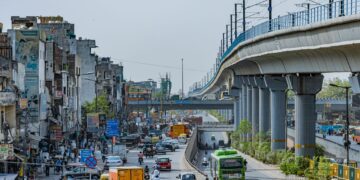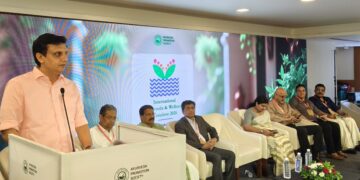
Rising disposable incomes, changing travel preferences, better infrastructure, and a growing desire for upscale experiences are all contributing factors to the dramatic evolution of India’s hotel and resort sector. The industry is seeing an unparalleled uptick in demand as domestic and international travel picks back up after COVID, especially in the resort, wellness, eco-tourism, and historical sectors. While putting his magnifying glass on this sector, GM- HR Corporate at Mayfair Elixir Hotels & Resorts, had an exclusive conversation with BOTT as he provided more details on this vibrant and ever-growing industry.
How is hospitality and resort culture’s growth in recent years in India?
The hospitality and resort industries in India have grown remarkably over the past years. The economy of the country has changed after several government initiatives, along with changing consumer preferences and technological advancements. Campaigns such as Incredible India and Atithi Devo Bhava worked well in putting India into the world’s major travel destination. Various policies, like tax incentives and streamlined visa processes, encouraged tourism in India. It has something for each segment, from luxury resorts and boutique hotels to eco-lodges and wellness retreats, all appealing to a vast cross-section of travelers. The digital revolution has been brought on by online travel agencies and booking platforms, facilitating easy access to accommodations and enhancing the overall travel experience. In addition, India is fast becoming a brand known for wellness, giving new momentum to the expansion of this sector due to the resurgence of cultural and heritage tourism and emerging reputation for its Ayurvedic and yoga retreats. Other good examples of infrastructural improvement include connectivity through airports, roads, and railways which is also helping unlock the potential of remote and scenic destinations, leading, in these cases, to a rise in resorts in unexplored areas.
What are the major trends of this industry and what are the future developments that can further propel the growth of this sector?
The new change in the Indian hospitality sector is due to some of the prominent trends and futuristic developments. Personalization is one key aspect where hotels analyze customer data and then offer tailor-made experiences. Other areas-touched by technology would be such operations like mobile check-in, AI-powered concierge services, and immersive virtual tours. Spas and Fitness Centres combined with some serious healthy-eating options have been considered as the most recent trend based on health and wellness tourism. The other area in focus is sustainability where certain green practices have been adopted such as rainwater harvesting, waste minimization, and use of renewable energy. There would be a future growth in the sector because now there is more leisure travel, an increased middle class, and therefore a shift to mid-segment hotels that cater to budget travelers. Alternative accommodations such as private vacation rentals and homestays cause a stir as options to tourists. Government initiatives, such as “Incredible India,” coinciding with infrastructure improvements, are further expected to elevate the industry.
What are the major challenges that this sector is going through and what are the most probable solutions?
Truly there is a lot more left to grow in India as far as the hospitality and resort sector is concerned. The sector faces a number of challenges, like inconsistent state regulations, availability of workforce, sustainability concerns, rising operational costs, and increased adoption of advanced technology. Such drastic variation between state policies makes the licensing and compliance process difficult, which, in a way, weakens labor-intensive operations already having a high attrition rate due to low wages coupled with long hours and little career growth. Sustainability is now a rising priority as eco-friendly practices, waste reduction, and conservation of energy are becoming prevalent. Furthermore, costs and digitalized guest experiences are demanding that the businesses embrace modernization while keeping alive the personalized service factor. Therefore, streamlining regulations, workforce development by way of good wages and training, intelligent integration of technology while not losing the human factor, sustainable practices, and a strong online presence to engage customers are some recommendations. These can actually start becoming the recommended suggestions to be followed to best address the aforementioned challenges, thereby enabling the hospitality sector to sustain growth while rendering world-class experiences.
In terms of generating job opportunities, where do you see this sector contributing?
One of the major employment-generating sectors for youth in India will be hospitality in general, working in hotels and resorts, food and beverage service, culinary arts, event management, and tour operations and travel agencies. Other indirect stakeholders in these developments, such as human resources, finance, engineering, and loss prevention support functions, will also enjoy increased demand. Young professionals in this industry must develop important skills like adaptability, problem-solving, communication, customer service, and hospitality software proficiency. Entrance routes such as studying hospitality management or working towards certificates in areas like culinary arts, travel, and tourism, and event management, while also acquiring some vocational training, will definitely arm them with the know-how required. With skills and education tailored to the industry, the youth of India should be in a solid position to exploit the booming hospitality sector for sustainable career development and economic viability.
Like any other sector, threat of AI replacing humans also looms high on this industry what is your take on this?
The impact of advanced AI technologies on the hospitality sector has the potential to increase efficiency, automate mundane jobs, and personalize guest experiences. AI plays a significant part in demand forecasting, dynamic pricing, and supply chain optimization, while at the same time, it leads to operational change by introducing self-check-in kiosks, AI-enabled concierge services, and automated room controls. However, human specialists have not been displaced in some delicate areas where emotional intelligence, complex-level problem-solving, or personalized luxury service-the qualities lacking in AI-are required. Such travelers also wish to discover authentic interactions between humans and themselves beyond automation. Thereby replacing jobs will not be the case, but rather propelling hotel’s effort into upholding guest-centric experiences with the use of AI as one great tool for hospitality professionals to channel their focus toward refining their skills digitally and uplift service standards in this technologically advancing landscape.
How government policies are helping in attracting more foreign tourists to further enhance the growth of hospitality industry?
In the past, the Indian government has given some consideration to tourism development. Beautifully, however, it has announced a comprehensive strategy comprising reforms in accessibility, processes, and infrastructure enhancement to facilitate the travel experience in promoting foreign tourism. The Regional Connectivity Scheme (UDAN) is extending air routes to hitherto inaccessible and underserved destinations for enhanced accessibility. Campaigns such as “Incredible India” and active participation in world tourism fairs have actually made a well-rounded platform for showcasing the multitude of attraction India has to offer, while theme-based intervention concentrates on adventure, wellness, heritage, and eco-tourism. The introduction of e-visas and fast-tracked visa procedures are making travel to India easier for international visitors. Researching into sectors such as Swadesh Darshan and investing in roads, airports, and accommodation infrastructures are further investments by the government in tourism infrastructure. Tourist safety measures are being enhanced, with a strong emphasis being placed on sustainable tourism through the National Strategy for Sustainable Tourism, which ensures conservation of natural and cultural heritage. Increased budget allocations further reinforce India’s commitment to positioning itself as a premier global travel destination.
Follow BOTT on LinkedIn, Facebook, Twitter & Instagram
Subscribe BOTT Channels on WhatsApp & Telegram to receive real time updates


































